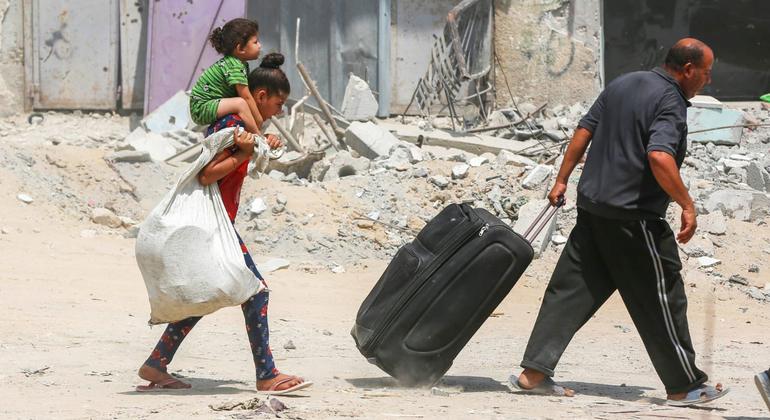Special Rapporteur Ashwini K.P., said at the end of a 12-day fact finding mission, that members of marginalised racial and ethnic groups in Brazil – including those of African descent and from indigenous groups – are experiencing “pervasive manifestations of systemic racism, as legacies of colonialism and enslavement.”
This form of racism, she said, has persisted since the nation was formed despite consistent and brave activism from those being discriminated against.
Recognising discrimination
Ms. K.P. commended the Brazilian Government for recognising that racial discrimination was a systemic issue and for enacting several strong laws and regulations to combat it.
However, “the lives of people of African descent, indigenous peoples, Quilombola and Roma persons, is far too often marked, in many cases irreparably, by endemic racialised violence and exclusion,” the expert said.
She noted rights violations toward the indigenous and Quilombola groups including police brutality, mass incarcerations, cultural and political exclusions and more.
“The severity of the situation demands utmost urgency. Bold and transformative action to dismantle systemic racism cannot wait,” Ms. K.P. said.
Justice and equality
The Special Rapporteur called on the Government to acknowledge, confront, and address the root causes, historical factors, and regional disparities that perpetuate racism and power imbalances.
She emphasised the need for a reparatory justice approach, noting that there are “significant gaps” in implementing laws and policies to effectively reduce racial injustice.
“Those from marginalised racial and ethnic backgrounds have already waited far too long for justice and equality,” Ms. K.P. said. “Lives depend on bolder and more immediate action.”
She is also calling on the Government to allocate more resources to anti-racial discrimination activities and increase the pace of change.
Special Rapporteurs are appointed by the Human Rights Council to serve in their individual capacity, independent of the UN system and national governments. They are not UN employees and do not receive a salary.





